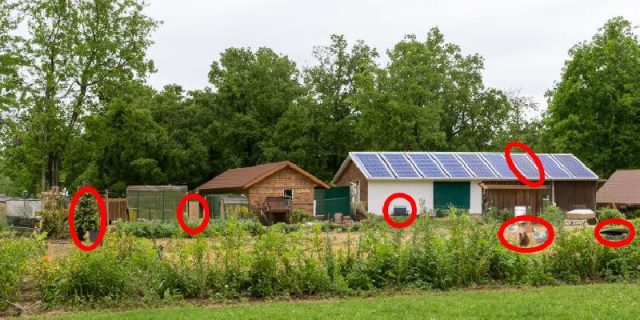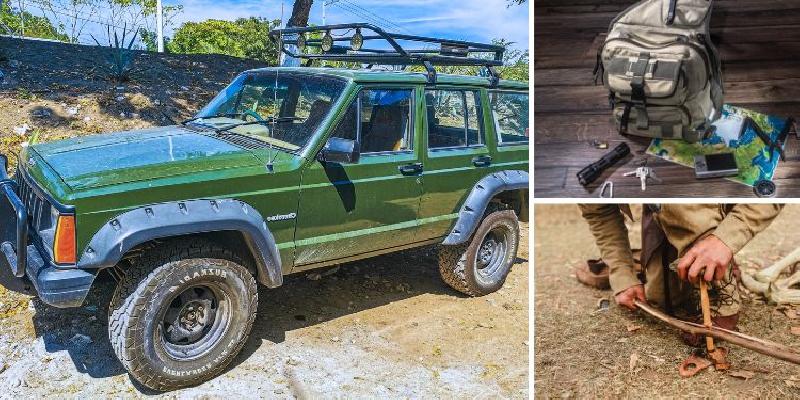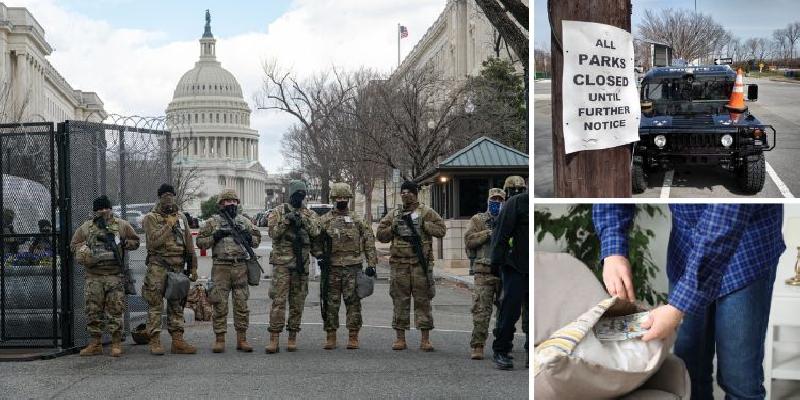Whether your home is a large sprawling property, a suburban house, or an apartment in a big city, nosey neighbors seem to always find a way to encroach on your privacy. Some of them are blatant, and others may be very sneaky about it.
As a prepper, what your neighbor already knows about you can dramatically influence how they behave towards you when a crisis arises.
At the root of prepping is the pursuit of security. Instead of relying on others, you take the initiative to provide food, electrical, physical, and many other forms of security for yourself and your family.
One of the greatest strengths a prepper can have is a robust knowledge base. On the flip side, others having significant knowledge about YOU and your efforts may become a troublesome vulnerability.
Here are some things your neighbor may already know about you and how to make it more difficult for them to learn more.
Firearm Ownership
Firearms are an integral part of even the most basic bugout kits.
They provide a critical layer of defense, and their mere presence is often enough to ward off unwanted encounters.

To a neighbor who has known for a while that you have firearms, they may see it as an opportunity for exploitation, biding their time and hatching a plan to get them from you.
Preventing them from knowing you have firearms is the best way to ensure you retain the advantage.
Neighbors may find out you have firearms from seeing gun cases on your way to and from the shooting range, overhearing your conversations about firearms, or visible gun-related items through your windows or on your person.
To avoid this, consider using discrete gun bags that could pass as something else, keeping conversations about firearms inside your home, and refraining from open displays of ownership. These displays could be as simple as the Molon Labe sticker on your truck, gun collections on your walls that are visible from the outside, or even something as blatant as open carry. Meld discretion into your interests, and you can have the best of both worlds.
Energy Independence
Energy, a pillar of the modern world, is a significant endeavor for preppers. Off-grid systems often consume considerable space, and the very nature of energy harvesting means the devices cannot be easily hidden. Even temporary energy sources like generators can be bulky.
Neighbors may see visible installations like solar panels, large propane tanks, generators, wind turbines, or hydroelectric setups. Wind turbines, however small, are difficult to hide because they need to be in the open and exposed to work.
For generators, try to place them inside your home or an external enclosure while maintaining proper ventilation and fire safety.
Generators are also extremely loud. Here’s a great solution if you want to get rid of this noise, and stay safe during a major blackout.
Solar panels can be obscured with dense shrubs or trees without reducing access to the sun.
Vegetation can also be used for hydroelectric systems if you are fortunate enough to have a stream in your backyard.
Propane tanks, if you are the owner, can be buried, painted to blend in, or even have a faux rock cover placed on them to look like a large boulder.
When dealing with electricity and flammable substances, local ordinances can vary widely, so be sure to do some research on this one.
Gardening, Livestock, and Food Stockpiling
Chickens clucking, goats bleating, and pigs oinking are unmistakable signs you have livestock. That, paired with the smell, can be a dead giveaway.
While it may be impossible to conceal the presence of livestock on your property fully, you can minimize how much is known about it.
Fencing can keep prying eyes from getting an accurate count, while regularly cleaning the enclosures can keep the smell from traveling very far and attracting distant attention.

Gardening is another space-intensive process, and a sprawling garden with bright red tomatoes will be hard for anyone to miss.
To minimize the ability of neighbors to see the extent of your gardening, tall shrubs or a fence can be installed around the garden.
If space is limited, you could grow distinctive plants like tomatoes, squash, and jalapenos indoors while growing medicinal and nondescript plants outdoors by planting in a way that seems just part of the landscaping.
If you are serious about growing a survival garden that your neighbor know nothing about, I strongly recommend this comprehensive guide. It offers invaluable insights and practical advice for transforming your backyard into an invisible self-sustaining vegetable garden.
Spread your food purchases out over time to reduce the appearance of stockpiling. You will want to store the food in a cool, dry place anyway, so the basement is a perfect location that is suitable for avoiding detection by the neighbors.
If you are ordering food products specific to prepping, such as emergency rations or dehydrated products, see if they are (or can be) shipped in generic boxes so neighbors will not know what the contents are.
Water Sources
If you are fortunate enough to have a well on your property, it is likely a pump well that can be easily hidden or even piped inside your house. Old-fashioned bucket wells and rainwater collectors are more difficult to hide and are clear indicators that you have water procurement and storage capabilities.
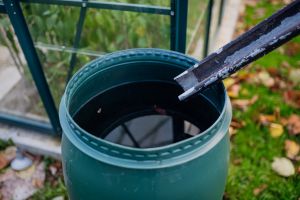
Rainwater barrels can be painted to blend in with the surroundings or obscured with vegetation.
They can even be built within smaller structures or under the deck.
If you are using hydroponics, rainwater can be directly piped to your internal water system for your garden.
Underground Shelters or Safe Rooms
The highly coveted underground shelter/bunker or safe room is generally well-concealed by design. Secrecy is the first line of defense for these structures. Still, your neighbor could find out about this shelter by overhearing your conversations or, critically, by seeing the construction efforts.
If you are constructing a shelter externally from your house, build a large screen to obscure the view and cover ventilation pipes or entrances with effective camouflage. Interior construction is easier to hide, though the materials coming in and out will still be obvious.
A good cover story about remodeling this or that can go a long way. Hiring a contractor from a fairly distant city can reduce the possibility of word spreading locally about what you are building. Even better, you can build a hidden bunker like this one in your backyard for cheap.
Communication Equipment
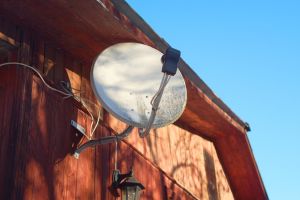
Some communication equipment, like satellite dishes, are perfectly ordinary to have on a house and will not draw unusual attention. Large antennas, on the other hand, signify communications equipment beyond just your internet and TV service.
Ham radio antennas can be quite large, and CB radio antennas are distinguishable.
Even if your neighbors have food stocks of their own, they may come knocking on your door if traditional communication channels go down, trying to find out what information you have heard or if you have had contact with anyone.
Fortunately, antennas can be concealed with a bit of work. Dipole antennas can be run in the attic or up trees in the backyard. Special considerations may have to be taken to reduce interference, but the antenna will be concealed.
False tree branch antennas are also on the market, and you can even modify a spare satellite dish to become a 2-meter slot antenna.
Surveillance Equipment
The presence of security cameras is a strong preventative measure and is often enough to keep criminals off your property. It can also hint at an advanced security setup. Neighbors may see abundant cameras and suspect you have even more security contained within your house.
To get the best of both worlds and avoid neighbors from inferring too much, you can have a handful of typical security cameras around the house that are visible and offer preventative measures against criminals while having additional cameras and detection equipment concealed within structures or around the property.
“Out of sight, out of mind” and “loose lips sink ships” are two phrases that summarize this article. The better you are at concealing your prepping endeavors, the more advantageous your position will be when your preparations are needed.
While it is generally better to live in your own skin and not worry about what people think about you, it is indeed important to worry about what they KNOW about you, especially when it comes to prepping.
Keep your prep information secure, try not to boast or be too casual with conversations, and blend your preparations into regular life to avoid detection. Do this, and you will retain the advantage.
Share your top stealth-prepping tips in the comments below!
via askaprepper

